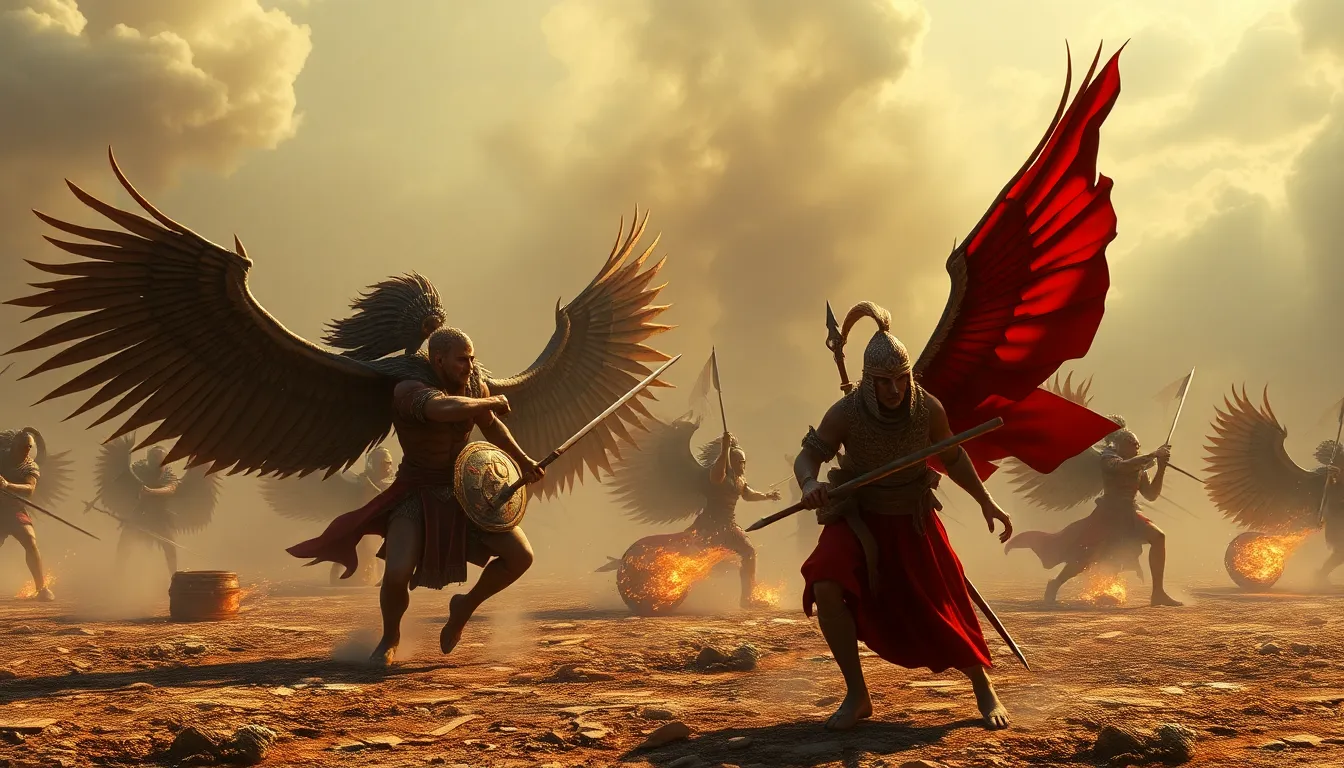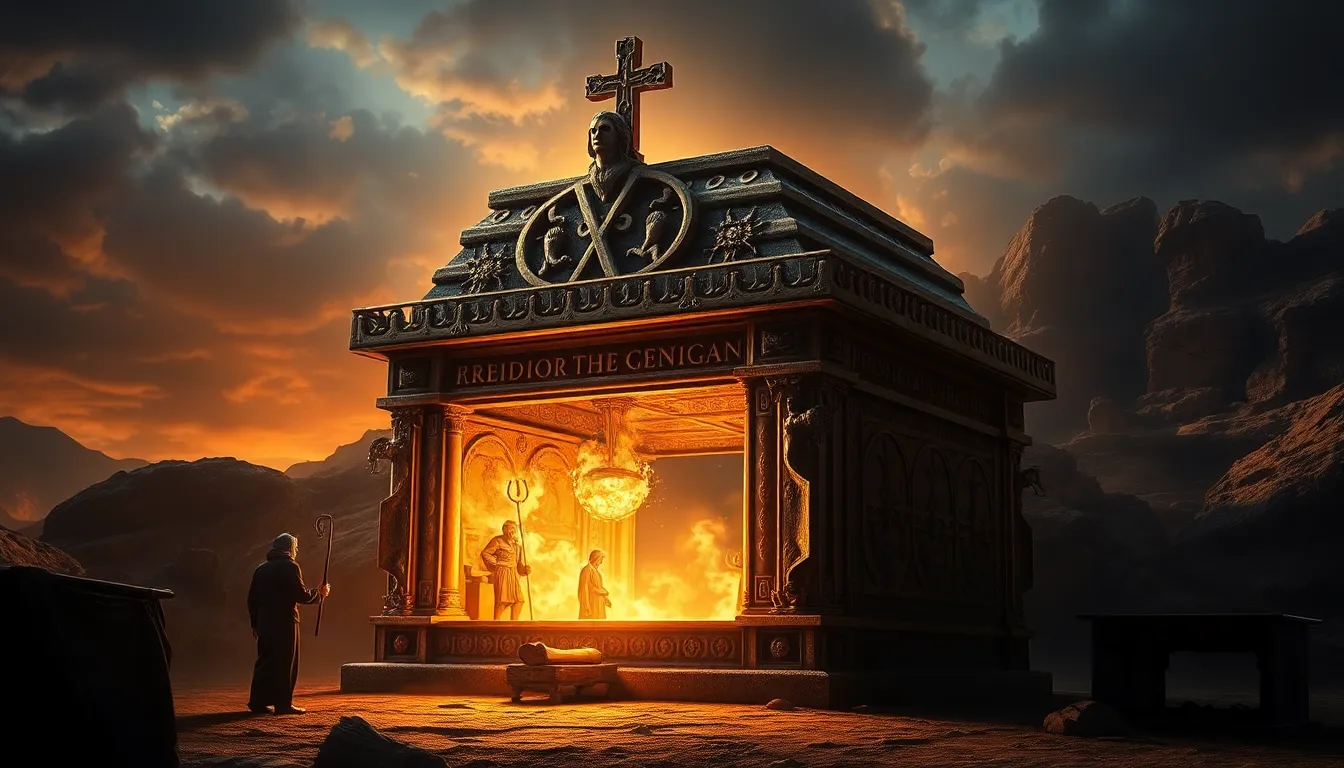Legends in Combat: The Fiercest Mythological Duels of All Time!
I. Introduction to Mythological Duels
Mythological duels are epic confrontations between legendary figures, often embodying the struggle between opposing forces such as good and evil. These battles hold significant cultural relevance, as they reflect the values, beliefs, and fears of the societies from which they originate. From the grandiose tales of Greek heroes to the fierce struggles of divine beings in Norse and Hindu traditions, mythological duels serve as powerful narratives that explore fundamental human experiences and moral dilemmas.
This article aims to delve into iconic mythological battles, examining their implications and cultural significance. By exploring these legendary confrontations, we can gain insights into the values and beliefs of the civilizations that created them.
II. The Context of Combat in Mythology
Conflict plays a crucial role in mythological narratives, serving as a catalyst for character development and the progression of stories. In many cases, these battles symbolize the eternal struggle between good and evil, reflecting the duality of human nature and the complexities of moral decision-making.
The representation of good versus evil in legendary battles often mirrors the societal values of the time. The heroes and villains of these tales can be seen as embodiments of the ideals and fears of their cultures. Additionally, the outcomes of these duels often reinforce the moral lessons that societies wish to impart to future generations.
III. Greek Mythology: Heroes and Monsters
Greek mythology is replete with tales of valiant heroes and fearsome monsters, many of which culminate in legendary duels that have captivated audiences for centuries.
- The legendary duel between Achilles and Hector: This epic confrontation in the Trojan War epitomizes the themes of honor and vengeance, as Achilles seeks revenge for the death of his friend Patroclus by challenging Hector, the greatest of the Trojan warriors.
- Theseus and the Minotaur: A battle of wit and strength, Theseus ventures into the Labyrinth to confront the Minotaur, a creature half-man, half-bull. This duel represents the triumph of civilization over barbarism.
- The clash of gods: Zeus vs. Typhon: In this titanic struggle, Zeus battles Typhon, a monstrous giant who threatens the very order of the cosmos. This duel not only showcases Zeus’s power but also highlights the theme of chaos versus order.
IV. Norse Mythology: Gods in Fury
Norse mythology features dramatic battles among gods and monsters, often reflecting the harsh realities of life in the Viking Age.
- The epic showdown of Thor vs. Jörmungandr: Thor, the god of thunder, faces off against Jörmungandr, the Midgard Serpent, during Ragnarok. This battle signifies the end of the world and the cyclical nature of life and death.
- Odin’s battles and the significance of Ragnarok: Odin’s confrontations with various foes, culminating in Ragnarok, represent the inevitability of fate and the struggle against chaos.
- The duel between Frey and Surtr: In this fiery confrontation, Frey, the god of fertility, battles Surtr, the fire giant, symbolizing the clash between growth and destruction.
V. Hindu Mythology: Divine Warriors and Demons
Hindu mythology is rich with tales of divine warriors battling formidable demons, reflecting the eternal struggle between good and evil.
- The struggle between Rama and Ravana in the Ramayana: This epic battle showcases Rama’s quest to rescue his wife Sita from Ravana, the ten-headed demon king, representing the triumph of dharma (righteousness) over adharma (wickedness).
- Durga’s battle against Mahishasura: The goddess Durga fights the buffalo demon Mahishasura, symbolizing the victory of feminine power over malevolence.
- Arjuna’s moral dilemmas in the Bhagavad Gita: In the context of the Kurukshetra War, Arjuna faces a profound moral crisis about fighting against his own kin, showcasing the complexities of duty and righteousness.
VI. Egyptian Mythology: The Balance of Chaos and Order
Egyptian mythology presents a dynamic interplay between chaos and order, often expressed through divine combat.
- The conflict between Set and Osiris: Set, the god of chaos, murders his brother Osiris, the god of order, highlighting the battle between these two opposing forces.
- Horus vs. Set: The son of Osiris, Horus, battles Set for the throne of Egypt, symbolizing the restoration of order after chaos.
- The concept of Ma’at: Central to Egyptian belief, Ma’at represents truth and order, and the divine battles often reflect the struggle to maintain this balance in the cosmos.
VII. Asian Mythologies: Rich Tapestries of Conflict
Various Asian mythologies present unique and intricate tales of conflict, showcasing the diversity of cultural narratives.
- The duel of Sun Wukong and the Jade Emperor: In Chinese folklore, the Monkey King, Sun Wukong, challenges the authority of the Jade Emperor, symbolizing rebellion against oppressive rule.
- The epic battles of the Mahabharata: This ancient Indian epic features numerous heroes and their conflicts, highlighting the complexities of duty, honor, and the consequences of war.
- Japanese mythology: Susanoo vs. Yamata no Orochi: The storm god Susanoo battles the serpent Yamata no Orochi, representing the struggle between chaos and the forces of nature.
VIII. Celtic Legends: Warriors and Their Foes
Celtic mythology is filled with tales of valor, honor, and the relentless pursuit of glory in battle.
- The famed battle of Cú Chulainn vs. Ferdiad: This tragic duel between the two warriors showcases themes of friendship and loyalty, ultimately leading to heartbreak.
- The significance of the Tuatha Dé Danann: These supernatural beings embody the ideals of bravery and skill in warfare, often depicted in their legendary battles against human foes.
- The interplay of fate and valor in Irish mythology: Many Celtic tales illustrate the belief in fate, where heroes must confront their destinies in the face of overwhelming odds.
IX. The Legacy of Mythological Duels
The legacy of mythological duels extends beyond their narratives; they continue to influence contemporary culture, literature, and art. These epic confrontations serve as metaphors for the struggles inherent in the human experience, representing our own battles against adversity, moral dilemmas, and the quest for meaning.
As we reflect on these legendary battles, we recognize their enduring relevance in understanding the complexities of life and the universal themes that bind us across cultures and time. The fierce duels of mythological heroes and gods remind us of the timeless nature of conflict and the quest for resolution in our own lives.



